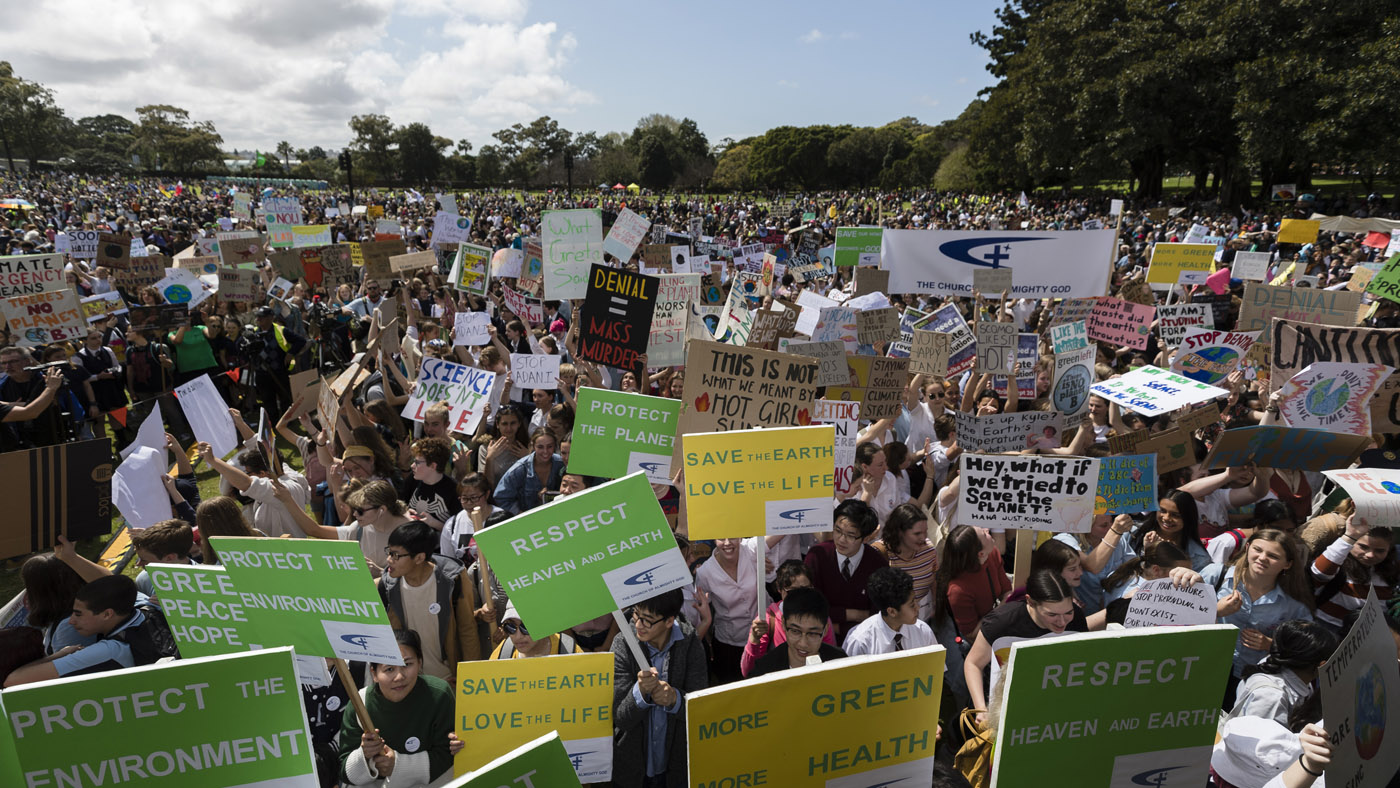Global Climate Strike begins: what are your rights for joining the workplace walkout?
Global walkout kicks off with hundreds of thousands of protesters expected across the world in more than 4,000 locations

A free daily email with the biggest news stories of the day – and the best features from TheWeek.com
You are now subscribed
Your newsletter sign-up was successful
Millions of people around the world – the majority children and teenagers – are expected to go on strike today to protest against to demand climate action from governments, businesses and world leaders.
Organisers of the Global Climate Strike are urging employees to leave their posts in order to “disrupt business as usual” and show decision makers that there’s “clamour among their workforce for strong climate action”.
Thousands of people have already joined the strike in Australia, New Zealand and the Pacific Island nations of Vanuatu and the Solomon Islands.
The Week
Escape your echo chamber. Get the facts behind the news, plus analysis from multiple perspectives.

Sign up for The Week's Free Newsletters
From our morning news briefing to a weekly Good News Newsletter, get the best of The Week delivered directly to your inbox.
From our morning news briefing to a weekly Good News Newsletter, get the best of The Week delivered directly to your inbox.
The walkout is an evolution of the school strikes for climate popularised by Swedish teenage activist Greta Thunberg. Earlier this year, schoolchildren across the UK refused to attend class as part of a coordinated global school strike aimed at forcing leaders to tackle climate change.
“Millions of school climate strikers have been leaving their classrooms every Friday. Now they hope that everyone else will join them in action,” says the Global Climate Strike website.
What is the goal?
The climate strikes are being organised to demonstrate the full extent of popular support for global action on climate change and to “demand climate justice for everyone”.
A free daily email with the biggest news stories of the day – and the best features from TheWeek.com
Scientists agree that the world is getting hotter and that the trend is extremely likely to be a result of human activity since industrialisation.
Experts says that if not addressed, the climate crisis threatens to bring extreme weather events, food shortages, health issues, deforestation, reduced wildlife, melting ice caps, warmer oceans, and up to a billion climate refugees by 2050.
Who is taking part?
The 20 September climate strike is for anyone who wants to take part.
“Everyone is needed to disrupt business as usual: from sports stars, actors and teachers to food industry workers, psychologists, delivery drivers and everything in between. We can all take part, whatever our circumstances, by refusing to accept the status quo,” says the strike website.
What are your rights?
In the UK, no employee has a “right to strike”, which means that anyone who leaves work when they’re contracted to be there is unlawfully breaking their contract. As such, if you join the walkout, your employer isn’t obligated to pay you for the time you miss and could take formal disciplinary action against you.
Employees do have legal protection when striking if the action is a “trade dispute” between “workers and their employer”, and a trade union has called for the strike following a ballot of its members, says legal site Lexology.
But because the the Global Climate Strike doesn’t concern a dispute between employer and employee, those striking won’t have the special legal protection afforded to union-backed strikers.
Employees can join the strike by formally requesting annual leave, but if an employer says no then the employee would be breaking their contract by taking an unauthorised absence.
What else can you do?
“On a grossly unequal planet, not everyone will be able to take a day off or take part in the same way. But we can all take a stand and make our voices heard,” says the climate strike website.
Organisers are urging anyone who can’t take part in the strike on 20 September to be allies to strikers. This could mean organising marches and rallies for weekends, when fewer people are at work; posting messages on social media in support of strikers; and joining a planned digital strike to show “support for millions of people walking out of their homes and workplaces”.